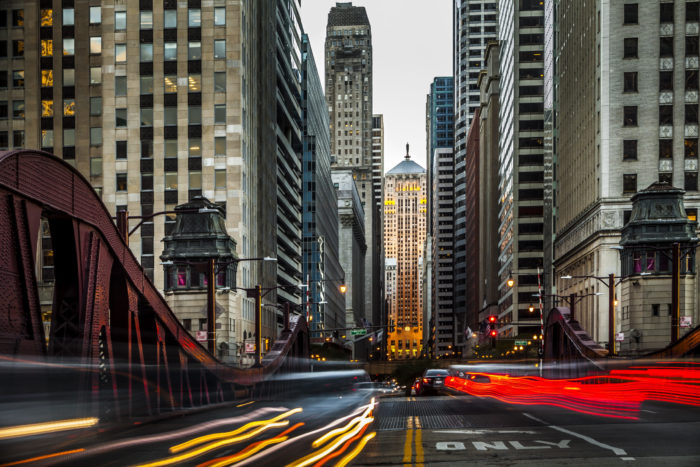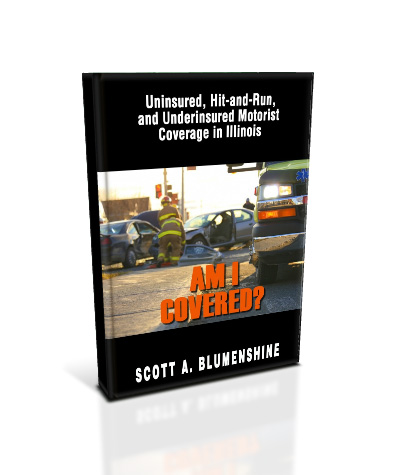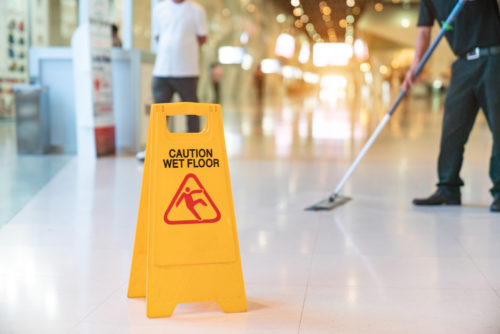If you've been injured in Chicago due to a property owner's negligence, you need a trusted legal partner to help you seek justice and fair compensation. At Blumenshine Law Group, our experienced Chicago premises liability attorneys are dedicated to advocating for your rights and ensuring you receive the compensation you deserve. Contact us today at (312) 766-1000 for a free consultation.
What is a Premises Liability Case?
A premises liability case is a legal compensation claim that arises when an individual is injured while on someone else's property due to unsafe conduct or conditions. Such a case is based on the careless operation or maintenance and dangerous property conditions that led to the injury. This type of case can be brought against multiple parties, including property owners, property managers, or those with the right to use and occupy the property, such as a repair company. Premises liability cases allow an injured party to recover damages for the harm they suffered due to the property owner's failure to ensure safe conditions.
Proving Property Owner Negligence in Chicago Premises Liability Claims
A successful premises liability claim in Chicago proves that the property owner's negligence or careless conduct led to the injury. The property owner is duty-bound to maintain safety on their property and if they fail to fulfill this obligation, resulting in harm to someone, they are liable for damages. Compensation for injuries may be available if the injured person can prove these elements.
At Blumenshine Law Group, we are dedicated to offering expert and empathetic legal guidance tailored to your unique needs. With years of experience serving the Chicago community and the broader Illinois region, we have consistently championed the rights of personal injury victims, especially those affected by the carelessness of property owners and managers. Our track record speaks for itself, with hundreds of cases where we've achieved total settlements exceeding millions for our valued clients.
Injured on Unsafe Property in Chicago? We Can Help.
At Blumenshine Law Group, our personal injury lawyers have helped numerous victims recover compensation after slip and falls, trip and falls, inadequate security, and other property hazards in Chicago. We handle the legal complexities - you focus on healing. To get started on your premises liability case, call (312) 766-1000 or request a free review today. Don't go it alone - let our dedicated team protect your rights.
Elements of a Premises Liability Case
- Duty is the legal obligation of property owners and occupiers to be careful and attentive to potential risks of injury to people who come onto the property and to take action to prevent injury to others.
Duty Examples (for Property Owners and Managers)
- Landlord duty to tenants and visitors: keep sidewalks and stairs free of debris and liquids, keep the walkways level, and install lighting in walking areas.
- Store duty to shoppers: keep aisles clean and unobstructed for customers.
- Restaurant duty to customers: ensure that food and drink spills are cleaned up immediately.
- Bars: do not over-serve alcohol to customers, eject drunk patrons, have trained security at the bar to manage any dangerous conflict, and have a policy that police are called immediately if conflict escalates.
- Hotels to guests: keep walkways clear and free of debris, and have security measures in place to prevent criminal conduct that endangers guests.
- Office buildings to occupants: keep lobby floor clear and dry, have functioning elevators and keep stairway steps safe.
- Condo and Apartment buildings to residents: have working locks and other security features, ensure doors and windows can be locked, and prevent entry by known dangerous people.
2. Breach of duty is the failure to use reasonable care to prevent foreseeable injuries.
Examples:
- Allowing tile floors to become cracked and uneven,
- Not cleaning up a food or drink spill in a store aisle,
- Not providing security in a parking lot where customers had previously been assaulted.
Proving Fault for an Accident on Premises in Chicago
In Illinois, proving the defendant's fault or negligence is required to win a successful recovery. The injured party bringing the case must prove, by a “preponderance of the evidence” that the conduct of the defendant was negligent. What is negligence? Essentially, negligence is an unsafe condition or conduct. Negligence is defined as the failure to meet the duty of “due care.” At its core, negligence is about a lack of safety.
Proving fault requires the use of the law and the evidence. The law comes from many sources:
- Statutory law - law “on the books” passed by the legislature
- Municipal ordinances - laws passed by cities and counties
- Case law - law from court decisions
- Contracts - Property owners may have entered agreements requiring them to use due care for the safety of others
Evidence of fault comes in many forms such as:
- Testimony - what people say and describe under oath
- Documentary - contracts, operating manuals, emails
- Visual - photos and videos
At Blumenshine Law Group, we understand that lawsuits aren't without their complexities. When faced with a liability claim, many property owners might put up a defense. They could contend that the injured party was partly or entirely at fault, perhaps by not heeding clear warning signs or entering areas they shouldn't have. Another common defense is that the hazard was clearly visible, and a vigilant individual would have sidestepped it. Navigating these challenges requires expertise and a deep understanding of the nuances of the law. That's where we come in. We're here to ensure you're well-informed, prepared and represented every step of the way. Your rights and interests are our top priority.
Compensation in an Illinois Premises Liability Case
Compensation in an Illinois Premises Liability Case is based on the facts and law of each case. Of course, the competence and commitment of your attorney matter greatly. The two primary factors that drive compensation amounts are the severity of the injury and the nature of the property owner’s negligence. A third factor is the amount of insurance policy limits.
Compensation elements:
- Medical expenses (past and future)
- Disability (past and future)
- Pain and suffering (past and future)
- Income loss
- Disfigurement (scarring)
We have a case where our client was severely injured by a falling garage door. The homeowner had just $300,000 in liability insurance. The limit of $300,000 is the maximum compensation. Most business owners have at least $1,000,000 in liability insurance. The credibility of the injured person is a factor in compensation. Most people are honest. If an injured person is not honest, the value of the case can go down.
Some of the factors that contribute to compensation in a premises liability claim
- Severity of injuries
- The fault of the property owner or property manager
- Insurance policy limits
- The credibility of the injured person
Successful Case Results We Have Recovered For Our Clients in Premises Liability Claims
Trip and Fall / Paralysis - $3,950,000 - Recovery for our physician client who suffered quadriplegia injury as a result of a fall-down incident.
Leg Crush at Vehicle Repair Shop - $1,500,000 - Recovered for leg crush injuries sustained by a 31-year-old truck driver at a truck repair facility.
Slip and Fall in workplace / Back surgery - $1,275,000 - Recovery for 58-year-old elevator mechanic who slipped and fell on the slippery coating on the roof of a high-rise building. Our client underwent significant back surgery.
Chair collapse / Shoulder surgeries - $900,000 – Recovery for our client as a result of a stool collapse at a laundromat. Our client sustained a rotator cuff tear needing 3 surgeries including a total shoulder replacement
Brain Hemorrhage / Parking lot potholes - $475,000 - Recovered for our client who tripped and fell in the parking lot of a big box store due to the severely cracked pavement
Fatalities and Wrongful Death Claims in Premises Liability Cases
Fatalities and wrongful death liability claims can result from various incidents such as slips and falls, construction accidents, and hazardous property conditions. If a person dies due to a property owner's neglect or failure to maintain a safe environment, the surviving family members may file a wrongful death claim.
The compensation in a wrongful death claim can include reimbursement for medical expenses, funeral costs, lost income, and loss of companionship. Punitive damages may also be awarded to penalize the owner for their deliberate or reckless actions.
It is crucial to consult early on with an experienced premises liability attorney at Blumenshine Law Group who can guide you through your legal options and ensure that your rights are protected. We listen to your experience, investigate the accident circumstances, gather evidence to support your claim, negotiate with insurance companies, or pursue your rights in court. By holding the liable parties accountable, you not only receive the compensation you deserve but also help prevent similar accidents from occurring in the future.
What Are Common Types of Premises Liability Accidents?
- Broken or Dangerous Stair Accidents
- Wet and Slippery Floor Accidents
- Uneven Floor surface Accidents
- Hotel Accident
- Elevator Accident
- Porch Collapses
- Rental Property Injuries
- Animal bites and attacks
- Amusement Park Accidents
- Drowning Accidents
- Swimming Pool Accidents
- Bridge Collapses
- Stairway and Uneven Steps Accidents
- Grain Bin Explosions
- Gas Explosions
- Property Contamination
What Are Common Injuries From Premise Accidents?
- Broken bones and fractures - Falls often cause broken bones or fractures. These range from minor cracks to complex breaks needing surgery. Signs include severe pain, swelling, bruising, difficulty moving the limb, and distortion of the injured area.
- Traumatic brain injury (TBI) - A TBI happens when a sudden force or blow causes brain damage. Causes include car crashes, falls, sports injuries, and head impacts. Symptoms range from mild concussions to severe cognitive/physical disabilities. Seek medical care after any head injury, as damage may not be immediately evident.
- Concussions: a type of traumatic brain injury (TBI) resulting from a significant impact to the head or body, can create a variety of distressing symptoms. Sufferers may experience symptoms such as headaches, vertigo, disorientation, amnesia, and aphasia, among other complications related to speech and communication.
- Brain hemorrhage: a type of bleeding within the skull that ensues from an external force exerted upon the cranium or physical body, can be brought on by numerous factors, which include skull fractures, contusions, or lacerations. If someone shows signs like severe headaches, confusion, weakness, or fainting, they need to seek medical help right away because it could be dangerous and life-threatening.
- Skull fracture: A skull fracture is a crack or break in one of the skull's bones. It is often caused by major head trauma from events like car accidents, falls, and assaults. Skull fractures can range from minor hairline cracks to severe fractures that cause bone fragments or compartmentalize the brain. Symptoms include visible deformation of the head, bruising, bleeding from ears, headaches, confusion, and loss of consciousness. Skull fractures require prompt medical care to check for brain injury and stabilize head structure.
- Post-traumatic stress disorder and other psychological conditions
- Back and Neck Injuries - falls can cause excessive force to the neck and back which are anchored by the spinal structures. The cervical (neck) spine and lumbar (back) spine are particularly vulnerable to injury in fall-down incidents. Examples of serious neck and back injuries are:
- Herniated discs
- Vertebra fractures
- Pinched nerves
- Torn Ligaments and Cartilage - falls can cause twisting and torquing of the joints which exceed their normal capacity
- Burns - fires and explosions often result in painful and disfiguring burns.
- Fatal injuries (aka “Wrongful Death”) - the more tragic premises liability injuries result in death.
Why do I need an experienced, ethical, zealous attorney?
So, why not do a Google search on how to handle your own premises injury case and have at it? Well, you could, and you could succeed. And, you could ruin your claim and lose. The likelihood and I have seen it time and time again is that a non-lawyer is not equipped to handle the complexities of litigating a serious personal injury case. There are court rules, procedures, and crafty experienced insurance defense attorneys that are minefields that can blow up your case. So whether or not to handle your own personal injury claim is a decision to be made based on careful analysis.
How do you analyze whether to handle the case yourself?
I like to do risk and reward analysis when deciding on what to do. The rewards of handling your own case could be:
- That you have the satisfaction of handling the claim yourself
- Being in control of your situation
- Not relying on someone else
- That you do not owe a legal fee to a lawyer
The risks of attempting to handle your case without a good lawyer:
- Saying something that endangers your case
- Signing something that provides evidence against you or that waives or limits your rights
- Inexperience in dealing with insurance company processes
- Failure to obtain sufficient evidence
- Failure to get adequate medical attention or complete medical documentation
- Failure to file suit by the deadline caused an irrevocable loss of the right to recover compensation
- Failure to comply with court rules puts the case at risk of dismissal
- Failure to know legal rules of procedure and evidence
- Failure to understand case value
- Inability to procure insurance policy liability limits
Our Chicago Premises Liability Attorneys Stand Ready to Support You
Blumenshine Law Group promptly delves into your case, collaborating with adept investigators to thoroughly document accident scenes, engage with witnesses, and secure vital evidence, including surveillance footage. We consult with specialists to understand the root causes of accidents due to hazardous property conditions. A pivotal aspect of our approach is identifying the responsible property owner or manager. Our dedicated legal team meticulously assesses all damages, gathering medical records and liaising with medical professionals to outline both past and future medical costs. We craft a compelling compensation request for the involved insurance entities and stand prepared to represent you in court if needed. Our attorneys are known for achieving significant verdicts across Illinois. We ensure you pay only when we attain a financial settlement for you.
At the Blumenshine Law Group, we're committed to helping you get the justice and compensation you deserve if you've been injured due to someone else's negligence. With our experienced premises liability law attorneys by your side, you can focus on your recovery while we handle the legal aspects of your case. If you've been injured on someone else's property, don't wait. Contact us now to schedule a free consultation with one of our attorneys. We'll listen to your story, answer your questions, and help you understand your legal options. Let us fight for your rights and help you get the compensation you deserve. Call or text us at (312)766-1000 or email [email protected].
Premises Liability FAQs
Who is responsible for maintaining safe premises?
Maintaining safe premises lies with the person or organization that owns or controls the property. This can include individuals, businesses, or government entities. They have a legal obligation to keep the property reasonably safe and free from hazards that could cause harm to visitors or tenants.
What should I do if I am injured on someone else's property?
If you are injured on someone else's property, it's most important to seek medical attention right away. You should also document the incident, report it to the property owner or manager, and consider speaking with a premises liability attorney to understand your legal options.
How long do I have to file a lawsuit?
In Illinois, the statute of limitations for bringing a premises liability claim is typically two years after the incident. It is vital to contact a premises liability lawyer promptly in order to determine the exact filing deadline.
How much compensation can I receive for my case?
The compensation you could receive in a premises liability case depends on various factors, like the seriousness of your injuries, the extent of your medical expenses, lost income, and the impact of the injury on your daily activities. It's crucial to collaborate with a skilled premises liability attorney who can provide insights into the potential value of your case and aid in negotiating a reasonable settlement or award. Since each case is unique and varies based on the circumstances, there is no predetermined amount of compensation for a premises liability case.
How much does it cost to hire an attorney?
If you hire us, our premises liability attorneys work on a contingency fee basis. This means you won't have to pay anything upfront or out of pocket. Our firm will only get paid if you receive a settlement or award. We can discuss the details of this arrangement when we look at your case.
What should I look for when choosing an attorney?
When looking for a premises liability lawyer, substantial successful experience in similar cases is required. Additionally, consider the communication style and responsiveness of the attorney and firm staff. Reviews and testimonials from previous clients will offer insight into their overall reputation and client satisfaction level.
Client Testimonial
"Andy and Scott did a great job on my daughter's injury case they got her a good amount back and they were really fast and very caring. I really recommend this law firm for any of your car injury needs"
A. Miller




